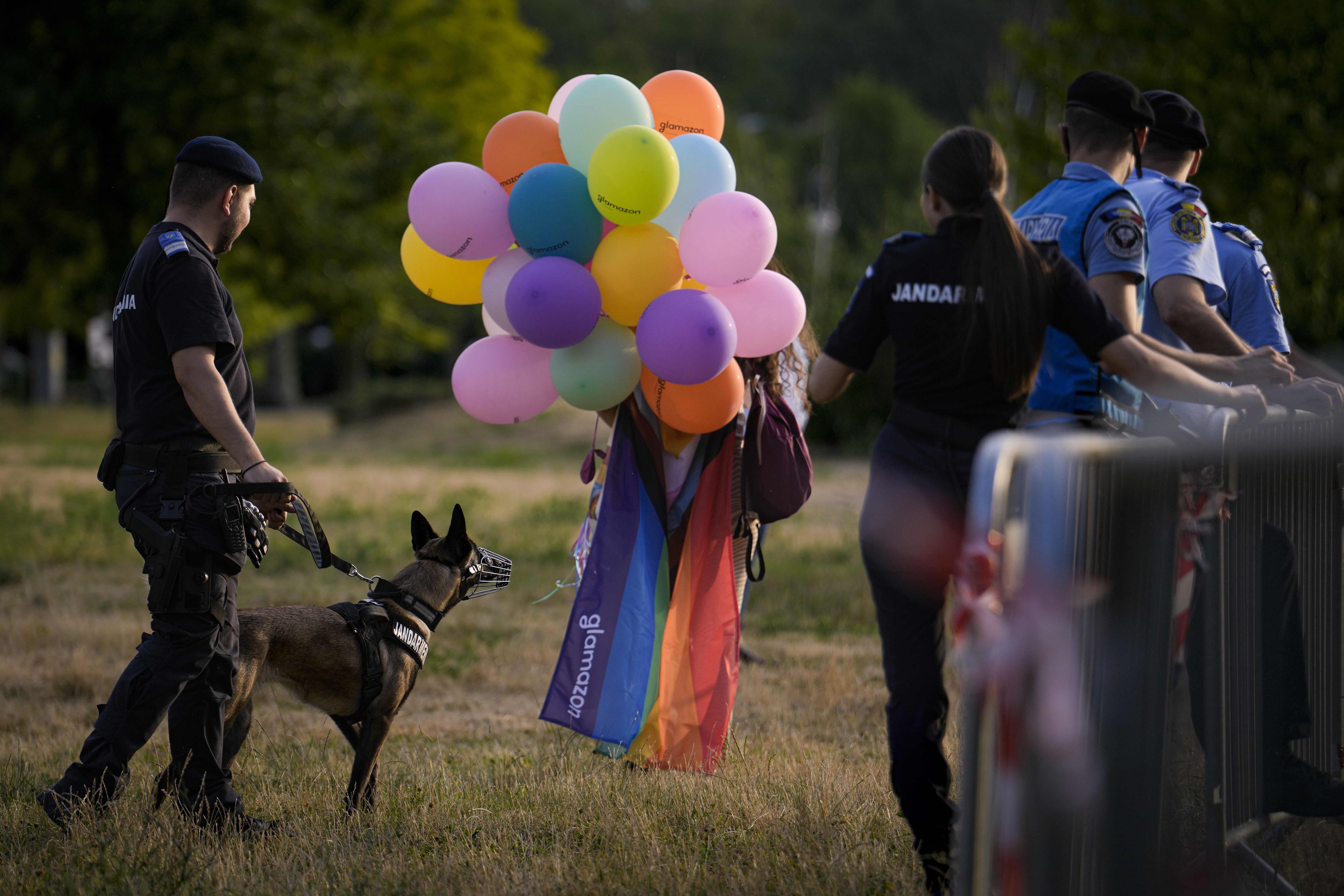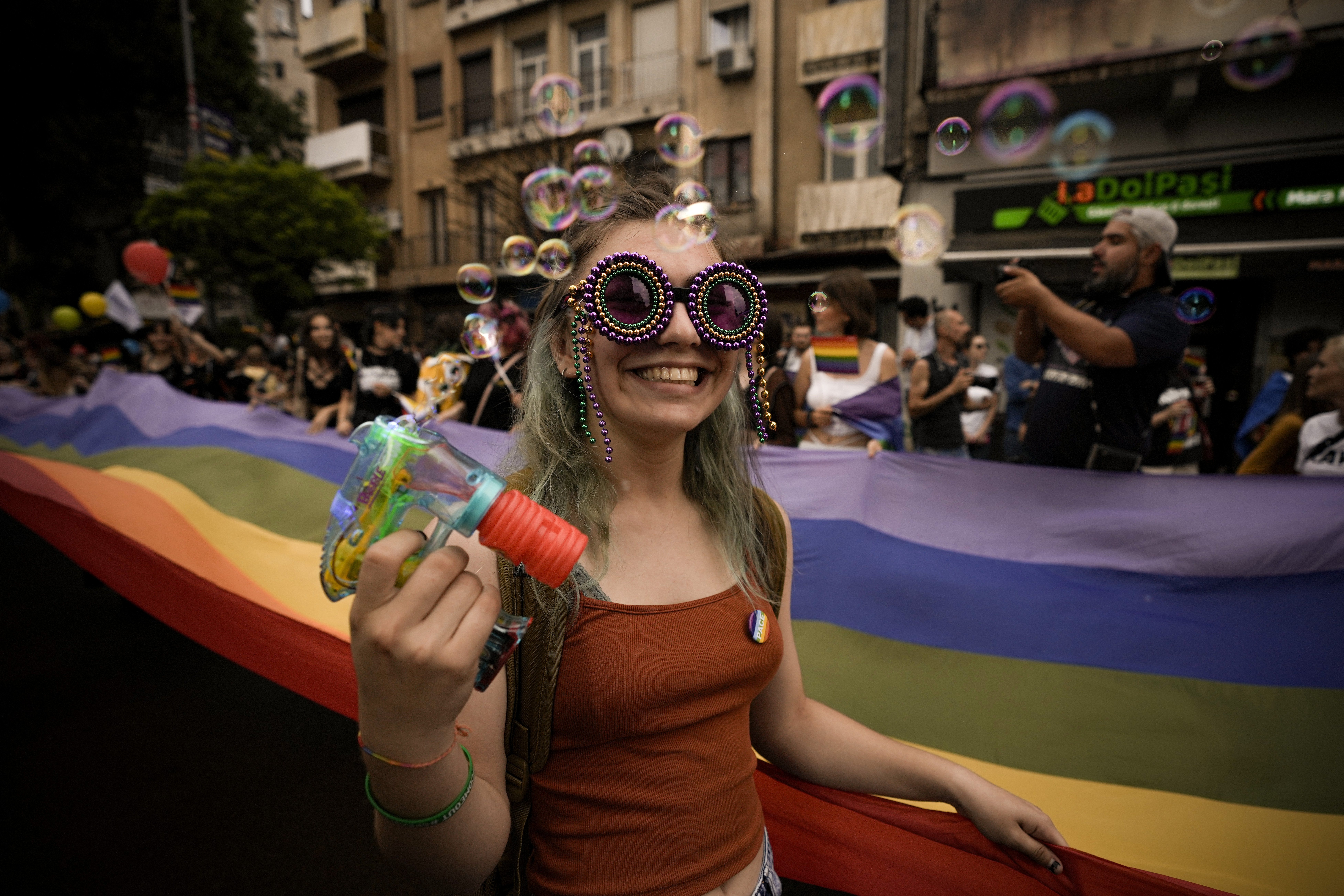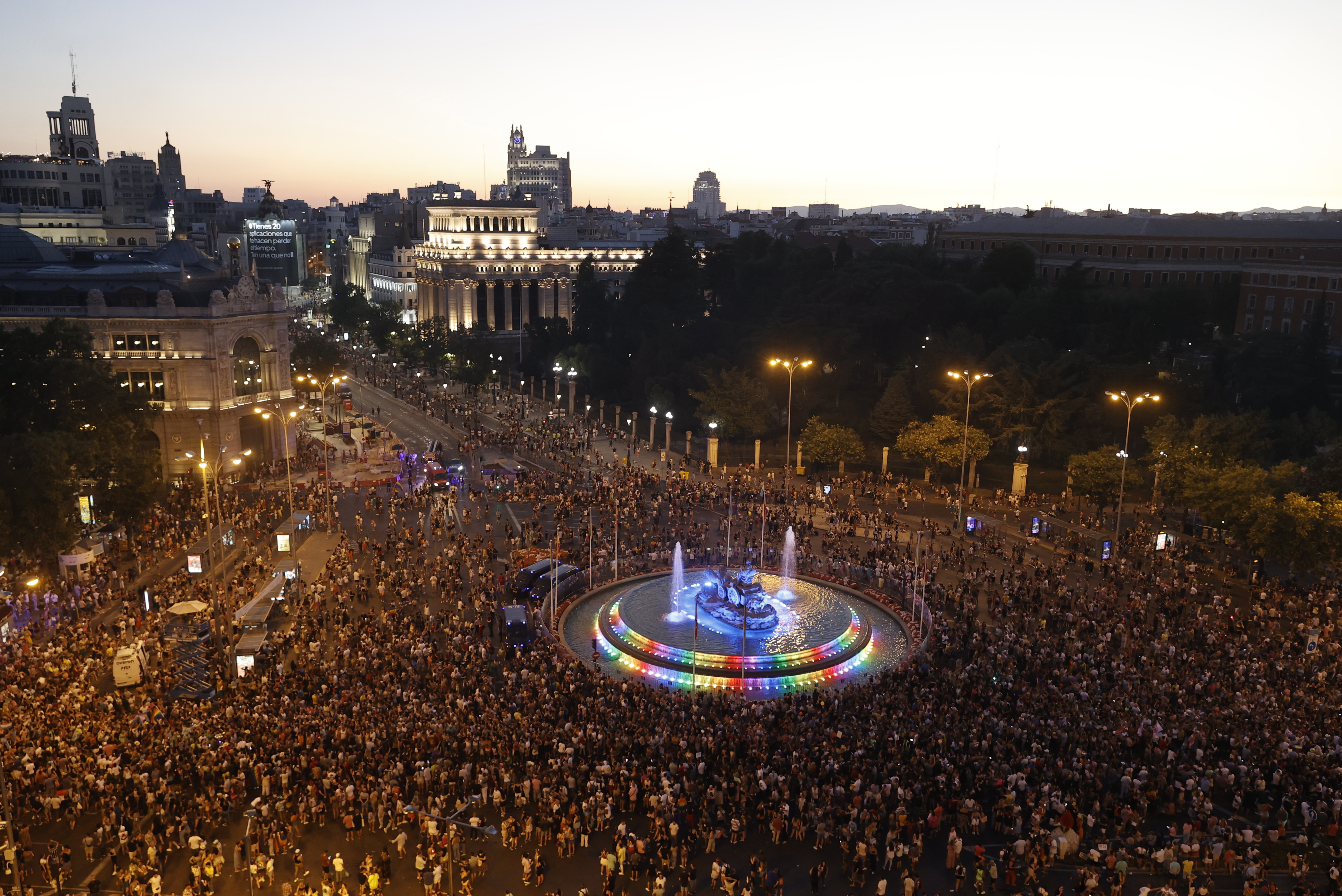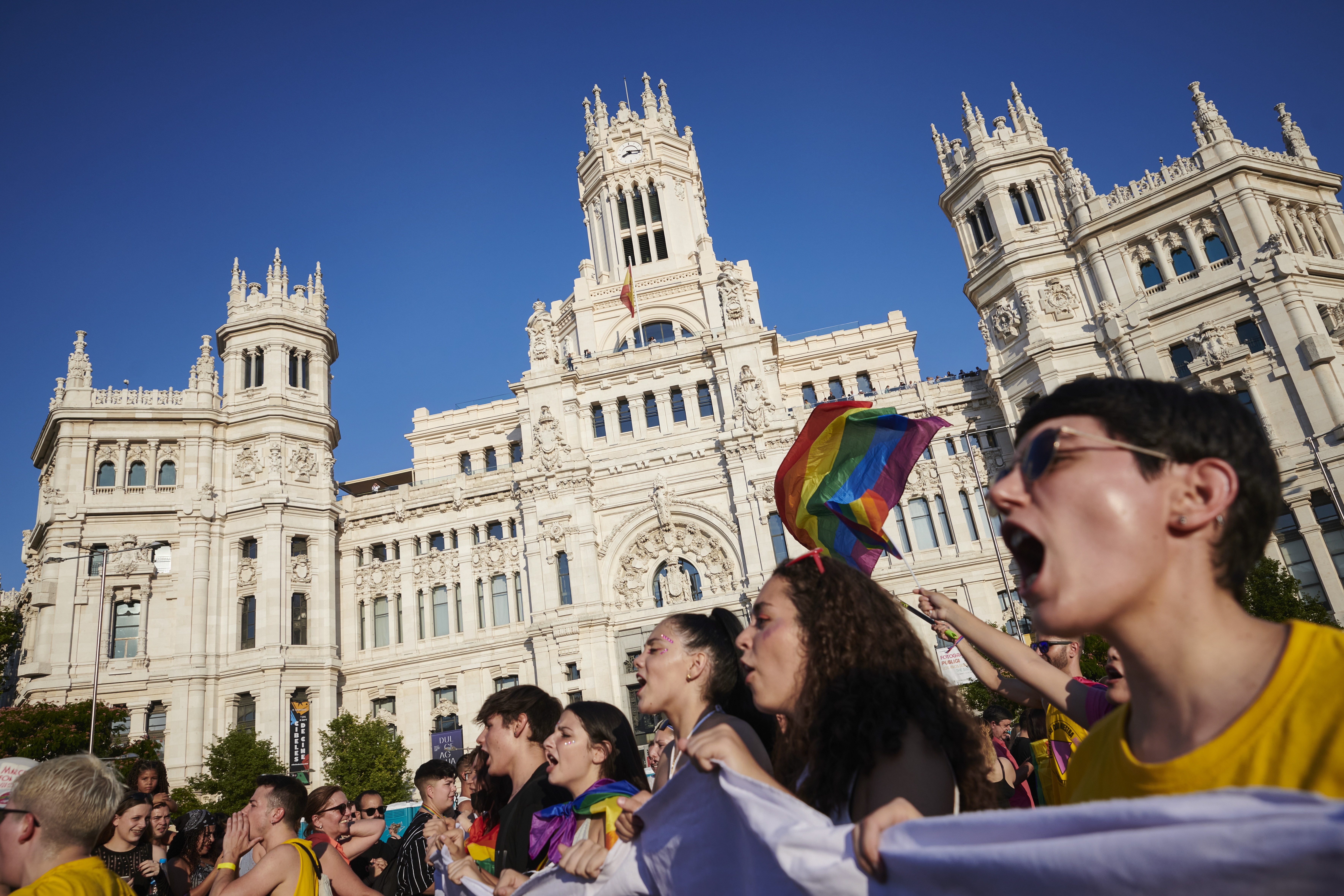Thousands marched in Romania’s capital Bucharest on Saturday to demand equal rights for gender and sexual minorities as fears rise over a draft law to ban the discussion of homosexuality and gender transition in schools.
Among the crowd, 37-year-old Catalin Enescu had come with his wife and two young daughters, both dressed in rainbow-coloured dresses.
"It's my first time taking part in a march like this, but it's important to be here because the rights of LGBTQ people are no longer respected," he said.
Romania decriminalised homosexuality in 2001, but same-sex couples are still not allowed to marry or enter into civil partnerships.
Activists are worried about a draft law, put forward by lawmakers from Romania's Hungarian minority, to prohibit educational material that discusses homosexuality and gender transition in schools.
The senate earlier this year passed the bill, though it still has to be put to a vote in the lower house.
The proposal is similar to legislation that came into force last year in neighbouring Hungary.

There was a heavy police presence at the Pride Parade in Bucharest, Romania. Source: AAP / Vadim Ghirda/AP
It came after around 200 people, several brandishing Orthodox Christian icons, earlier in the day responded to a call by far-right party Noua Dreapta for a counter-protest.
"The fact that pride celebrations are bigger and bigger while right-wing groups are smaller and smaller is a positive sign," International Planned Parenthood Federation’s Tor-Hugne Olsen said.
"But it's challenging that we see many proposals in parliament that are reducing the rights of the LGBT and other sexual health issues."
Protestor and University of Bucharest Professor Oana Baluta said she feared what would happen if the bill were passed into law in the European country.
"If it is adopted, this draft law -- which is contrary to European Union norms -- would deal a grave blow to the freedom of expression and rights of LGBTQ people," Professor Baluta said.

Thousands attended the gay pride march in the Romanian capital calling for equal rights for the LGBTIQ+ community. Source: AAP / Andreea Alexandru/AP
Romania has one of the highest rates of teenage pregnancies in Europe. Abortions are legal, but access to them has become increasingly difficult.
'Visibility, pride and resilience': Hundreds of thousands march in Madrid
Hundreds of thousands of people waved rainbow flags and danced to techno music at Madrid's Pride march on Saturday as the event returned following two years of Covid-enforced restrictions.
Demonstrators in the Spanish capital gathered in the late afternoon behind a large banner with the slogan "visibility, pride and resilience".
Some participants carried water pistols and sprayed each other to keep cool in the searing heat. Others went bare-chested and danced to the rhythm of Brazilian and techno music.

The demonstration ran through the streets of Madrid on Saturday under the slogan 'Facing hate: Visibility, Pride and Resilience'. Source: AAP / EMILIO NARANJO/EPA
"I missed this a lot, the atmosphere is great. You can see that people really wanted to party after so long without a 'normal' Pride," 38-year-old teacher Victor Romero Fernandez said.
City authorities said more than 600,000 people took part in the event, which Spain's public broadcaster Televisión Española covered live for the first time.
Civil servant Miguel Angel Alfonso, 44, appreciated seeing packed streets but thought the event should put more emphasis on demanding rights.
"It has become a big party, with floats converted into discos and multinationals... it's a big business," he said.

Hundreds of thousands showed up to the Pride Parade in Madrid, the first time full-scale celebrations have returned since the pandemic. Source: AAP / LUCA PIERGIOVANNI/EPA
But the national LGBTIQ+ federation, FELGTBI+, said it was important to give "visibility" to the community, denouncing growing "hate speech" in a statement before the march.
FELGTBI+ added that such discourse was "undermining the foundations of social harmony, putting at risk the gains achieved up to now".
The federation also supported a draft law, to be debated in parliament this summer, that would allow someone to change their name and gender on identity documents at their request from the age of 16.
If adopted, the legislation would make Spain one of few countries to allow self-determination of gender.


